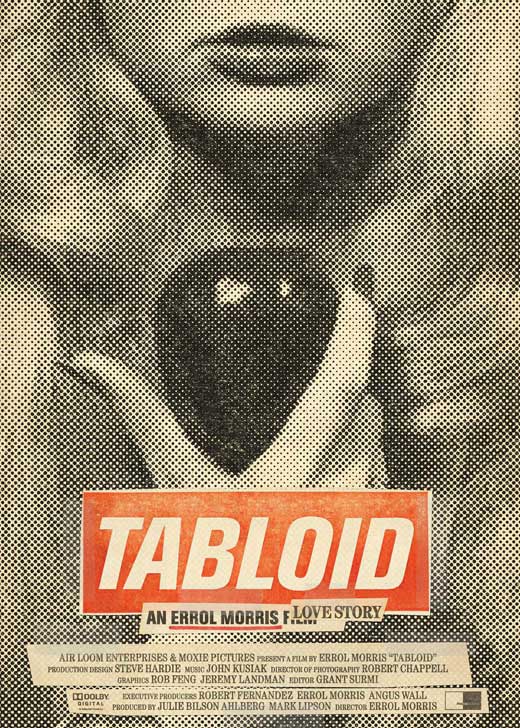 TABLOID (2010, directed by Errol Morris, 88 minutes, U.S.)
TABLOID (2010, directed by Errol Morris, 88 minutes, U.S.)
BY DAN BUSKIRK FILM CRITIC
Documentary master Errol Morris’ last couple features were such dark tales that the timing seems right for the good-natured naughtiness of his new film, Tabloid. The still-evolving scandal around Rupert Murdoch and the News of the World threatens to give this film a contemporary resonance but no, Tabloid‘s tale of true love gone criminally awry doesn’t reflect on the the doings of the rabid press. Instead, Morris uses his all-powerful Interrotron to examine Joyce McKinney, the one-time sex pot at the center of the 1977 sex scandal, as well as the ways in which we mythologize our lives.
McKinney still has a bubbly youthfulness while approaching senior citizen status and she plunges into the details of her tale with great gusto. According to her, she was just a normal girl who became excited by the good clean romance offered by the Mormon church in Salt Lake City. She moved there and met Kirk Anderson, beginning a chaste relationship that led to their engagement. McKinney’s marital plans were dashed when Anderson unexpectedly disappeared. McKinney hired a private investigator who tracked him to England where he was fulfilling his missionary duties and in 1977 she flew to the continent with three men. There they kidnapped Anderson, tying him to a bed in an isolated cottage while McKinney attempting to erase his Mormon brainwashing with three days of “food, fun and sex.”
All the things we love about Morris are present in Tabloid, the minimalist score, the slightly-deluded characters and the parade of witty stock imagery of a fantasized American wonderland. Along the way we meet the tabloid journalists who fed the hysteria around the story, as well as a few of McKinney’s accomplices, who still seem aroused by her flirting, teasing ways. After McKinney’s “true love” escaped captivity she pledged never to love again, seeming to prefer her idealized dreams of romance over the day-to-day reality human relationships. Along the way, Tabloid shows us that McKinney’s version of events has let out a few salient, contradictory details, but those mere facts wither under the sheer force of her highly romanticized memory.
With his last couple films being such serious examinations (the Robert MacNamara Vietnam meditation The Fog of War and the Abu Gharib torturers’ story in Standard Operating Procedure) Tabloid stands out as being the closest to a breezy summer movie among Morris’ eight documentary features. Yet, despite being entertaining from end-to-end, I could not help feeling that Tabloid is surprisingly slight for the filmmaker, the kind of subject he used to take care of in thirty minutes on his TV show First Person. Tabloid‘s agreeably smutty tale is confidently entertaining, but I’m not sure it pleasures run much deeper than the original “Sex in Chains!” stories that ran in the English press. Errol has made a film about tabloids but it narrowly escapes becoming one itself.
